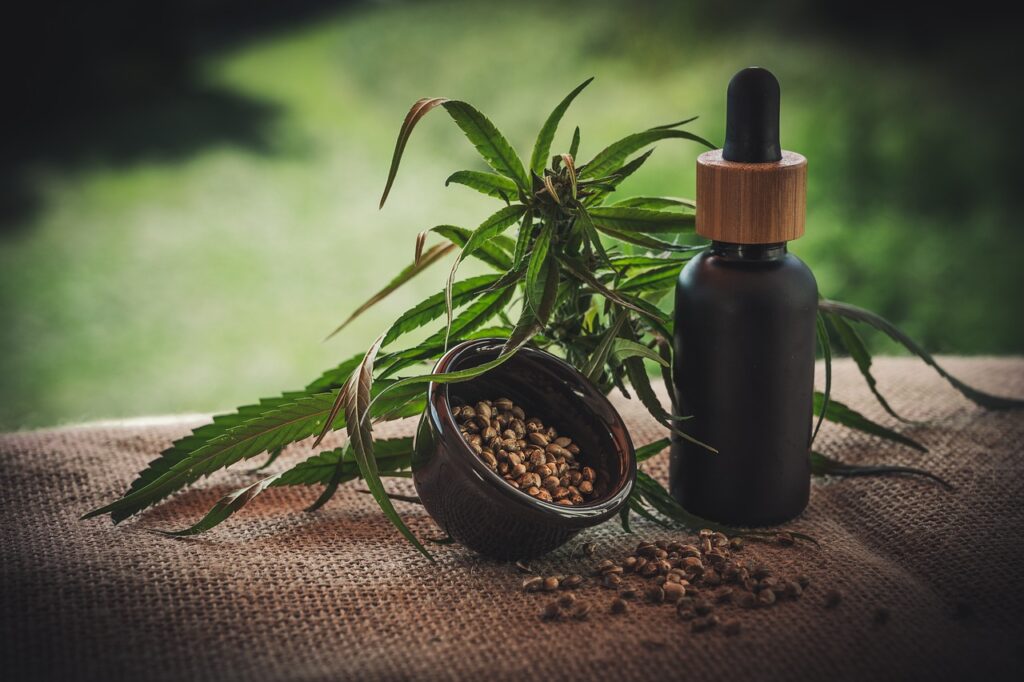Exploring the Potential of CBD: A Comprehensive Guide
by siteadmin

In recent years, CBD (cannabidiol) has emerged as a hot topic in health and wellness conversations. From oils to gummies, creams to capsules, CBD products are everywhere, promising a wide array of potential benefits. But what exactly is CBD, and how does it work? Let’s delve into the fascinating world of CBD to uncover its potential benefits, uses, and considerations.
What is CBD?
CBD is one of over 100 cannabinoids found in the cannabis plant. Unlike its cousin THC (tetrahydrocannabinol), CBD is non-psychoactive, meaning it won’t get you high. Instead, it interacts with the body’s endocannabinoid system (ECS), a complex network of receptors involved in regulating various physiological functions such as mood, sleep, appetite, and pain sensation.
Potential Benefits of CBD
Research into the potential benefits of CBD is ongoing, but some promising findings have emerged. Here are a few areas where CBD shows potential:
- Pain Management: CBD may help alleviate chronic pain by interacting with neurotransmitters and reducing inflammation. Some studies suggest it could be effective for conditions like arthritis, multiple sclerosis, and neuropathic pain.
- Anxiety and Stress Relief: Many users report that CBD helps reduce anxiety and promote relaxation. Studies have shown that CBD may affect serotonin receptors in the brain, which are involved in regulating mood and anxiety.
- Sleep Aid: CBD’s calming effects may also make it beneficial for improving sleep quality. By reducing anxiety and promoting relaxation, CBD could help individuals fall asleep faster and enjoy deeper, more restorative sleep.
- Neuroprotective Properties: There is growing interest in CBD’s potential neuroprotective properties, particularly in relation to conditions like epilepsy and Alzheimer’s disease. Some studies suggest that CBD may help protect against neurodegeneration and reduce the frequency and severity of seizures.
- Skin Health: CBD has anti-inflammatory and antioxidant properties, which could make it beneficial for skin health. Some users incorporate CBD into their skincare routine to help with conditions like acne, eczema, and psoriasis.
How to Use CBD
CBD is available in various forms, including oils, tinctures, edibles, capsules, topicals, and vape products. The best method of consumption depends on individual preferences and desired effects. Here are a few popular ways to use CBD:
- Sublingual: CBD oils and tinctures are typically taken sublingually (under the tongue) for fast absorption into the bloodstream.
- Edibles: CBD-infused gummies, chocolates, and other edibles offer a tasty and convenient way to consume CBD, though they may take longer to take effect due to digestion.
- Topicals: CBD creams, lotions, and balms are applied directly to the skin and are commonly used for localized relief from pain and inflammation.
- Capsules: CBD capsules and softgels provide a precise and easy way to consume a consistent dose of CBD.
- Vaping: CBD vape products allow for rapid absorption of CBD into the bloodstream through the lungs, but they may carry risks associated with vaping.
Considerations and Precautions
While CBD is generally considered safe, there are a few considerations and precautions to keep in mind:
- Dosage: Finding the right dosage of CBD can be a trial-and-error process, as it varies depending on factors like body weight, metabolism, and the severity of the condition being treated. It’s best to start with a low dose and gradually increase until the desired effects are achieved.
- Quality and Purity: Not all CBD products are created equal. Look for products that are third-party tested for potency and purity to ensure you’re getting a high-quality product free from contaminants.
- Drug Interactions: CBD may interact with certain medications, so it’s important to consult with a healthcare professional before using CBD, especially if you’re taking prescription medications.
- Legal Considerations: While hemp-derived CBD is legal at the federal level in the United States, state laws regarding CBD vary, so it’s essential to familiarize yourself with local regulations.
Final Thoughts
CBD holds immense promise as a natural remedy for a wide range of ailments, from pain and anxiety to sleep issues and beyond. However, it’s essential to approach CBD with caution, do thorough research, and consult with a healthcare professional, especially if you have underlying health conditions or are taking medications. With responsible use and careful consideration, CBD could become a valuable addition to your wellness routine, helping you live a happier, healthier life.
In recent years, CBD (cannabidiol) has emerged as a hot topic in health and wellness conversations. From oils to gummies, creams to capsules, CBD products are everywhere, promising a wide array of potential benefits. But what exactly is CBD, and how does it work? Let’s delve into the fascinating world of CBD to uncover its…
